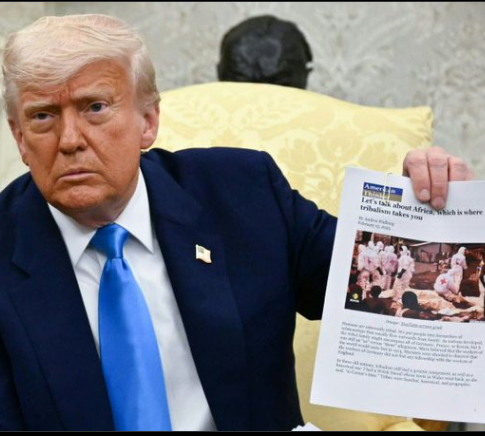Cape Town — American pastor and political figure Mark Burns has publicly refuted longstanding claims of “White genocide” in South Africa, following meetings with White farmers, business leaders, and former apartheid officials during his recent visit to the country.
In a statement shared on social media, Burns said he was “genuinely surprised” by the accounts he heard, particularly the widespread rejection of the genocide narrative that has gained traction in some right-wing circles internationally.
“There is no ‘White genocide’ happening here,” Burns wrote. “They [White South Africans] were genuinely surprised that this claim even made it to the international stage.”
While acknowledging that the controversial anti-apartheid struggle song “Kill the Boer,” popularised by Economic Freedom Fighters leader Julius Malema, is seen as “divisive” by many he spoke with, Burns emphasized that high crime rates in South Africa affect all communities—particularly Black South Africans, who make up the majority of victims.
“What is real is the devastatingly high crime rate across the country, with most of the victims being Black South Africans. Unemployment is crushing, and poverty is driving violent crime in all communities,” he said.
Burns credited a past Oval Office meeting between former U.S. President Donald Trump and South African President Cyril Ramaphosa with unintentionally triggering a more unified national response.
He outlined three developments he believes stemmed from that engagement:
-
The claim of White genocide has ironically unified South Africans across racial lines in rejecting the narrative.
Statement on White Genocide or White Farmers being Killed in South Africa:
I’m here in South Africa, meeting with White farmers, White business owners, and even some former Apartheid leaders, and here’s what they’re telling me: President Donald J. Trump is a great president, but… pic.twitter.com/1H48oBCDJv
— Pastor Mark Burns (@pastormarkburns) May 30, 2025
-
It has pushed crime and public safety to the top of the national agenda.
-
It has sparked calls to revisit Black Economic Empowerment (BEE) policies to ensure broader inclusion.
Burns noted that these perspectives were largely voiced by White South Africans, many of whom, he said, “love their country” and believe former President Trump was misinformed.
“The truth is more complicated,” Burns concluded, “but South Africans, Black and White, are working together to move forward.”
He ended his statement by expressing hope that Trump will attend the upcoming G20 summit in South Africa, where President Ramaphosa is expected to hand over the presidency of the group to the United States.
The debate over farm murders and racial tension in South Africa has drawn global attention in recent years, often becoming a flashpoint in discussions about land reform and post-apartheid racial dynamics. South African authorities and independent watchdogs have consistently disputed the narrative of a targeted campaign against White farmers.
Follow African Insider on Facebook, Twitter and Instagram


